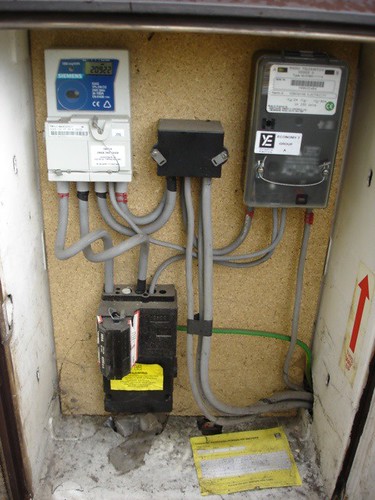Well there's only the Fuse cut out, the meter, a radio teleswitch, and the consumer unit. There all in a cupboard in the hall together (except the new non combustible CU, what is just outside the cupboard) and the noise can only be coming from the meter or the teleswitch.
The teleswitch is similar to the one shown in the photo below, except it's purple and possibly a bit taller IIRC.

Ok will advise them to. There house is fully heated with GAS CH and they don't have any significant night time loads. Simply they inherited the economy 7 tariff when they moved in a couple of months back.
The teleswitch is similar to the one shown in the photo below, except it's purple and possibly a bit taller IIRC.

I would get rid of the E7 asap, I've gotten rid of it everywhere I've lived that's had it (no storage heaters etc). If I recall, it works out 5p a unit more expensive in the day, and about 3 or 4p a unit cheaper at night to run E7 (Different suppliers may vary)
Ok will advise them to. There house is fully heated with GAS CH and they don't have any significant night time loads. Simply they inherited the economy 7 tariff when they moved in a couple of months back.

